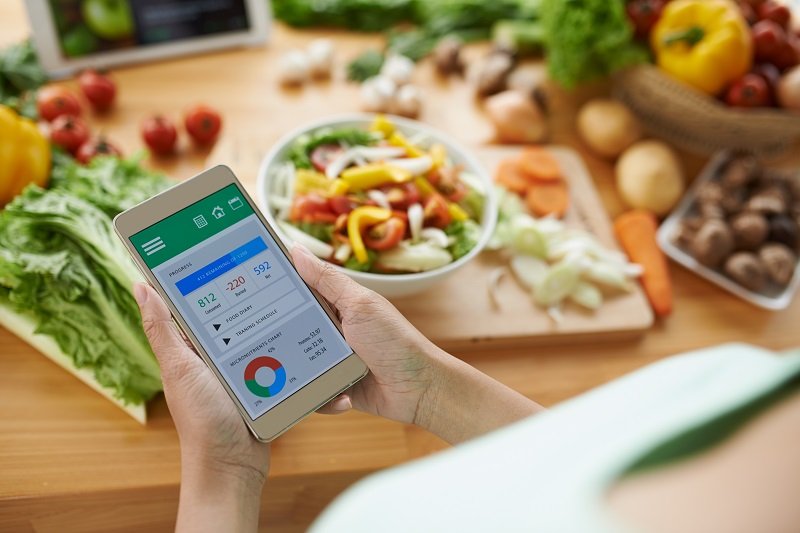As many experts suggest, there are many different keys to healthily losing weight. To shed excess pounds, regardless of the method chosen, you must be sure that you’re getting all the nutrients necessary for the task at hand. Aside from that, many would advise that you need to eat in smaller portions to lose weight effectively.
Smaller portions mean you need to eat less food. Smaller amounts might also mean that you need to eat foods with fewer calories. But what exactly are calories?
Understanding Calories
A calorie is simply a unit of energy defined explicitly as the amount of energy by the body for it to function optimally. So, does this mean that you have to consume foods that have a high-calorie content?
If you eat more than your daily quota of calories, you become obese and suffer health consequences. For instance, you may develop heart disease, diabetes, high blood pressure, and stroke. To avoid this, reduce your calorie intake by 500 calories a day and increase your physical activity.

Take note also that not all calories are created equal. Some are considered ‘non-nutritional,’ which means that they don’t contribute to good health.
Why You Shouldn’t Count Your Calories
Many fitness and health experts don’t recommend counting calories because it can confuse many people who want to lose weight. For example, one hundred calories of potato chips and one hundred calories of lettuce will be metabolized differently inside the body. Protein, sugars, and fat calories are different, and the body will use them differently, as well.
Click here to learn more about calories and how to plan out your meals in the most sustainable manner.
For now, here are some of the critical reasons why you shouldn’t obsess counting calories:
- Can Lead To Having Unbalanced Meals
A well-balanced meal has an equal balance of protein, carbs, and healthy fats. Additionally, a well-balanced meal consists of lean meats, poultry or fish, and various fruits and vegetables. You need to eat these food groups, along with some rice, pasta, salads, and bread, to round it all out.
When you obsess with the number of calories you eat for every meal, you’ll lose the balance needed to keep your body healthy. Many people make this mistake when following a 1200-calorie diet, especially those designed for women.
When it comes to losing weight, it’s not more of the quantity but the quality of foods you eat. This means you can eat as many fruits and vegetables that’ll fill your stomach in a meal and you won’t increase your weight. This is because fruits and vegetables provide more than calories and essential nutrients to keep your body functioning well.
- Can Hinder Muscle Growth
When building muscle, you need to have enough calories or energy to get through your workout and training sessions. To build muscle, you need calories and the right type of nutrition. Constricting calorie intake can lead to slow muscle growth. When you restrict your calorie intake, your metabolism slows down because of muscle loss.
A healthy eating plan that’s filled with unprocessed natural foods (no processed foods or chemicals) will enable you to eat in moderation and still feed your body with all of the nutrients that it needs to grow and repair your muscles.
- Can Lead To Consumption Of Unhealthy Diet Foods
When you focus too much on the quantity instead of the quality of what you eat, there’s an increased risk of turning to diet foods and beverages. Even though some foods are low in calories, they may have lower nutrient content as well. These foods often have additives and fillers to replace the calories that were removed.
It’s also not healthy to consume these diet snacks because it’ll make you hungrier.
- It’s Not A Sustainable Lifestyle
In reality, counting calories is okay for only a short amount of time. Restricting the number of calories isn’t an effective weight loss solution for the long term. Aside from that, regularly eating fewer calories than your body requires can cause health problems, like fatigue.
Final Thoughts
When it comes to losing weight or maintaining a healthy lifestyle, food quality is more important than quantity. Counting calories isn’t a sustainable way to lose weight since it can lead to other health problems, like fatigue and the consumption of unhealthy food. That’s why you should always choose to have a well-balanced meal.
Fortunately, a well-balanced meal isn’t hard to prepare for, and if you plan it out, it can fit into any meal planning schedule. You’ll find that once you get the idea about the foods you eat and the types of foods you eat, it’ll become second nature.























